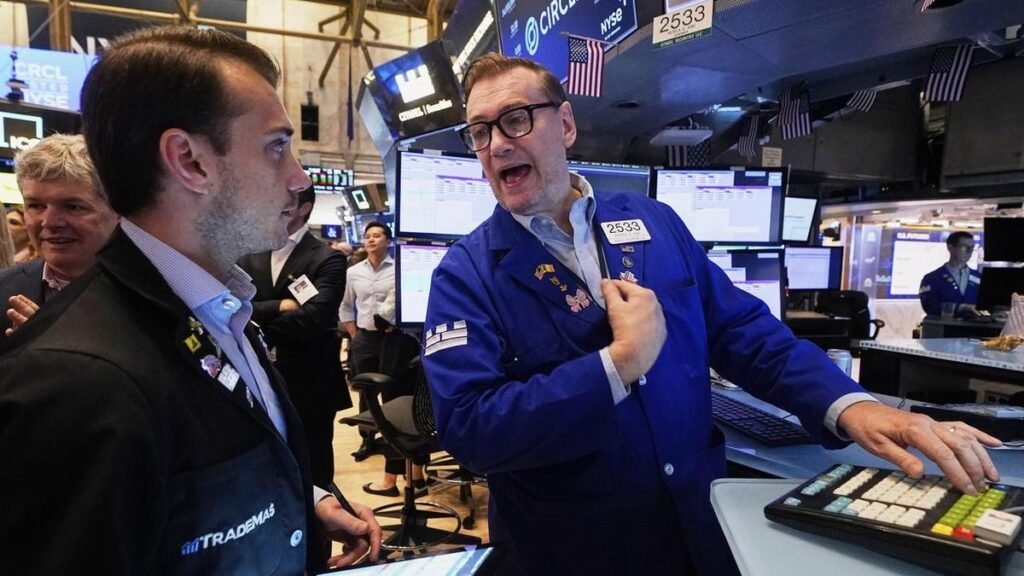US stocks have increased following a jobs report that surpassed expectations, alleviating fears about the economy. Tesla made a recovery after a significant drop the previous day, and tech stocks continued their upward trend.
Recent data revealed that nonfarm payrolls grew by 139,000 jobs last month, following a revised figure of 147,000 for April. Economists surveyed by Reuters had predicted an increase of 130,000 jobs.
The unemployment rate remained at 4.2%, aligning with expectations.
Art Hogan, chief market strategist at B Riley Wealth, noted, “While there’s a deceleration, the market isn’t falling apart, which is a positive sign. The job market isn’t deteriorating seriously.”
In the wake of the report, traders speculated that Federal Reserve officials would take their time on interest rate cuts, likely waiting until September for a reduction, with just one anticipated by December, based on futures for interest rates. The central bank’s policy meeting is scheduled for later this month.
Concerns about an economic slowdown linked to trade uncertainties were heightened by weaker-than-expected private payroll figures and service sector surveys this week.
Peter Navarro, the White House trade adviser, mentioned that a planned meeting between US and Chinese officials on trade is set to occur within the next week.
After weeks of rising trade tensions and disputes over essential minerals, President Trump and Chinese leader Xi Jinping spoke on Thursday, but key issues remain unresolved for future discussions.
In May, US equities saw sharp gains, with the S&P 500 index and the tech-heavy Nasdaq recording their largest monthly percentage increases since November 2023, driven by a softening of Trump’s tough trade policies and positive earnings reports.
The S&P 500 reached its highest level in over three months on Friday and is nearly 2.2% below the record highs seen in February. The Dow index also climbed to a near three-month peak.
The Russell 2000 small-cap index, which is sensitive to the economy, increased by 1.3%.
The Cboe Volatility Index, often referred to as Wall Street’s “fear gauge,” decreased by 1.19 points to 17.29, marking its lowest level in over two months.
In the early sessions on Friday, the Dow Jones Industrial Average rose by 541.42 points, or 1.28%, reaching 42,861.16. The S&P 500 increased by 69.27 points, or 1.16%, to 6,008.45, while the Nasdaq Composite climbed by 246.51 points, or 1.28%, to 19,544.96.
All 11 major S&P 500 sectors advanced, with communication services leading the way with a 1.9% increase, while technology stocks rose by 1.1%.
Tesla’s shares increased by 3.9% after falling about 15% on Thursday during Trump’s public dispute with Musk, which included threats to revoke government contracts with Musk’s businesses.
Other major companies also saw gains; Amazon’s stock rose by 1.9%, and Alphabet climbed by 2.8%.
In contrast, shares of Broadcom fell by 3.3% after the networking and AI chipmaker’s quarterly revenue projections failed to meet investor expectations.
Lululemon’s stock dropped by 20.4% after the sportswear brand lowered its annual profit forecast, citing increased costs due to Trump’s tariffs.
DocuSign’s shares went down by 18.9% following its first-quarter results.
On the NYSE, advancing stocks outnumbered declining ones by a ratio of 2.7-to-1, and on the Nasdaq, the ratio was 2.82-to-1.
The S&P 500 recorded 20 new 52-week highs with no new lows, while the Nasdaq Composite noted 47 new highs against 24 new lows.

